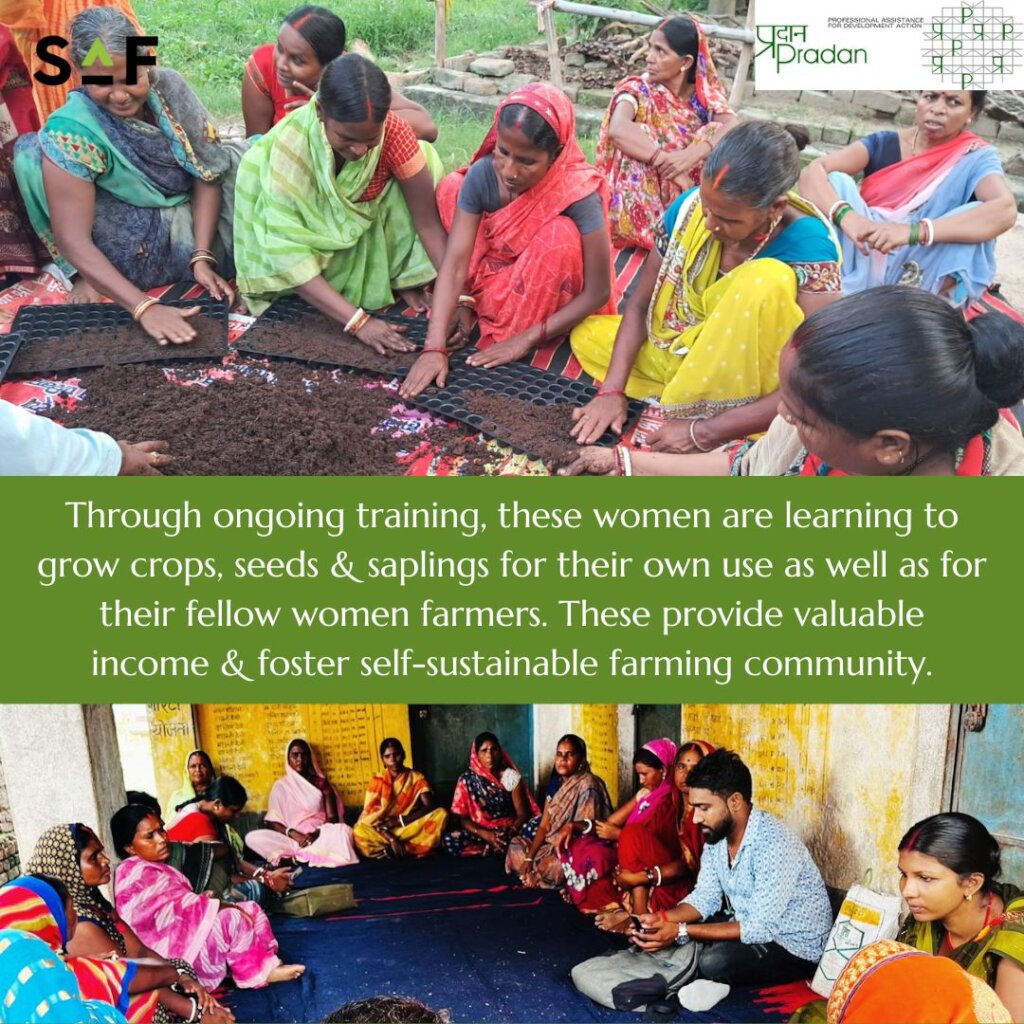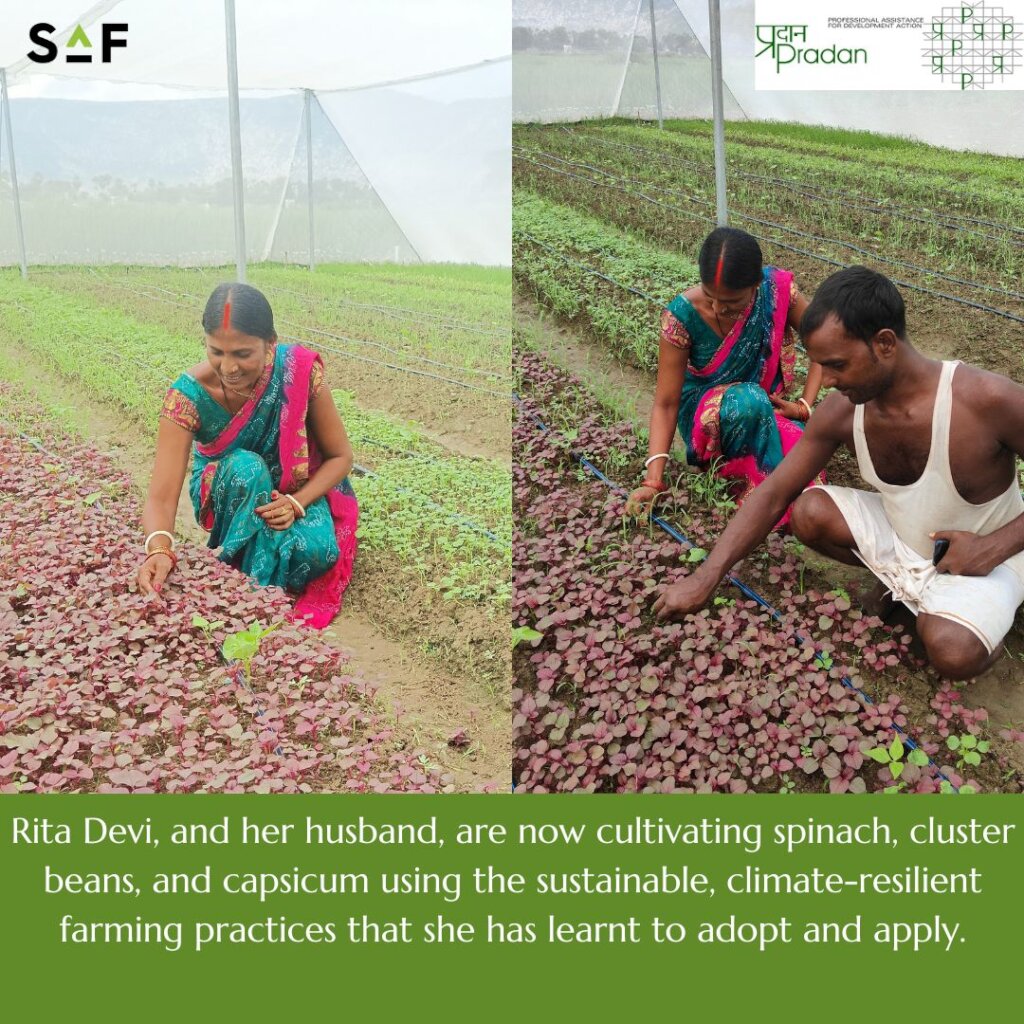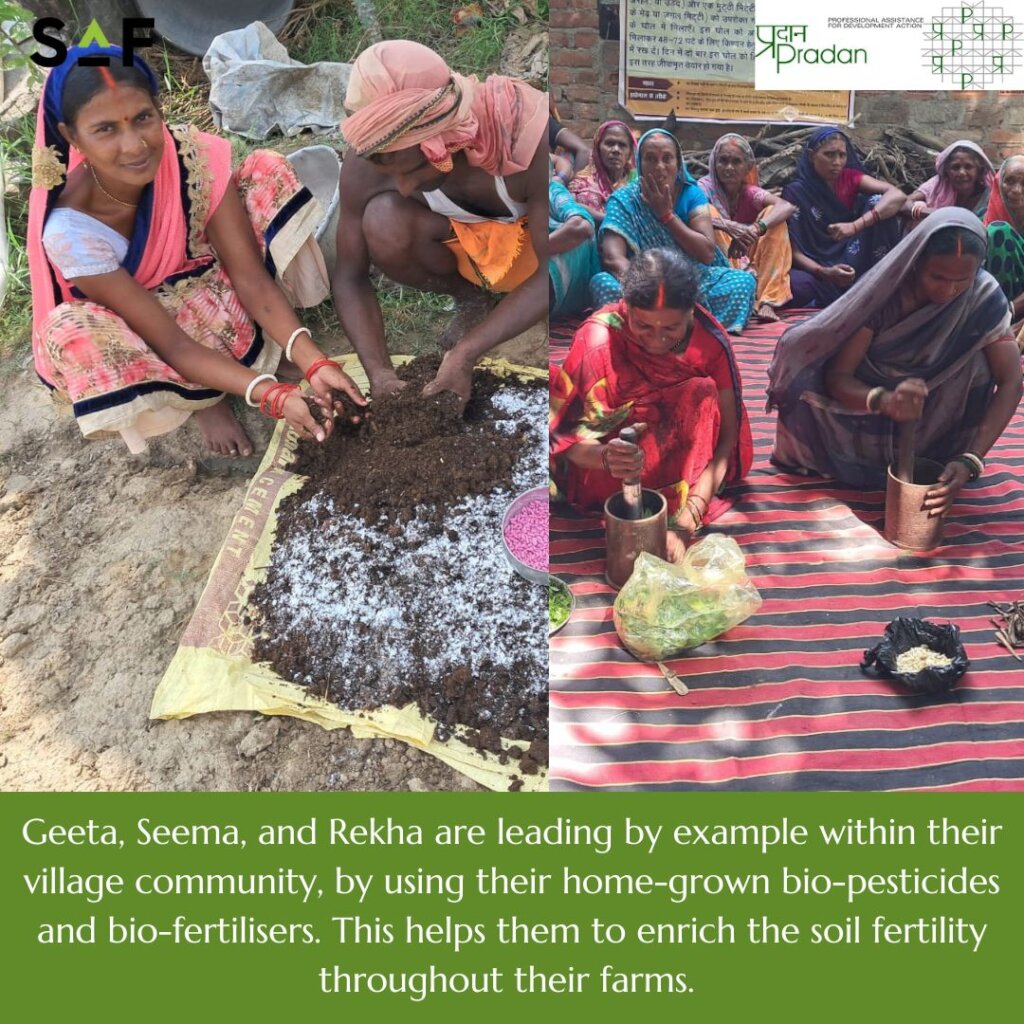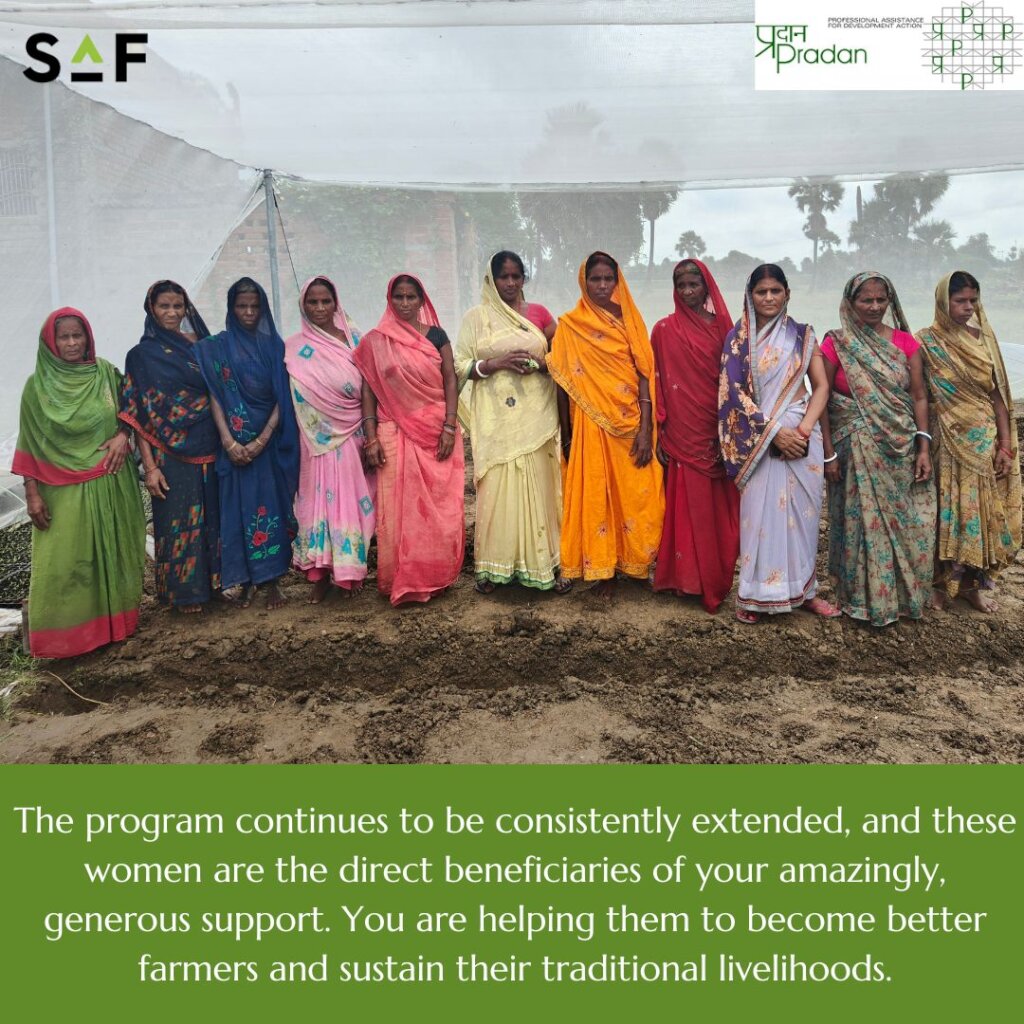Project Report
| Oct 9, 2024
Enabling Sustainable, Climate-Resilient Farming
![Sustainable, Climate Resilient Farming Training]()
Sustainable, Climate Resilient Farming Training
We are pleased to report that with your generous and amazing support, more and more vulnerable women farmers are adopting sustainable climate-resilient, farming practices while also fostering self-enabling farming ecosystems for their village communities.
Using the established and proven methods and practices, the program is rapidly expanding to lift many other vulnerable women farmers towards improved farming outcomes, while also increasing their knowledge and their confidence to help reduce the gender inequalities that have for so long and traditionally held them back from safeguarding their children’s and families’ welfare and food security.
In our report today, we share with you and illustrate just how amazingly well these women have quickly learnt and adopted new, sustainable farming methods while also encouraging other women in their villages to also benefit.
Training the women how to select most optimal crops to grow:
- Women farmers, such as Rita and Sheetal, are able to participate in training sessions that teaches them how to carefully select and plan the appropriate crops to grow which will also benefit their soil, reduced water consumption, nutritional health as well as maximise their income generating opportunities.
- During the training sessions, the women also gain essential knowledge for determining which crops will thrive most, given the combination of seasonal weather conditions, local market demand and soil suitability.
Growing saplings and a variety of crops within their greenhouses:
- Farmers, such as Rita and Sheetal, are using the knowledge and confidence gained to start cultivating seeds & saplings for use by their village farmers and more importantly as a local, trusted and reliable source for their fellow women farmers in their village communities.
- Another added, and very positive outcome, is that Sheetal is actively pursuing her sustainable, climate-resilient farming as a local enterpreneur to serve her fellow women farmers with the help of training from our on-the-ground partners.
- To help mitigate the risks of less than optimal outcomes, these women are taught how to cultivate three varieties of crops which will all serve demand throughout the year in their local marketplace.
The value of making their own bio-fertiliser and bio-pesticides:
- Through specialised training, often referred to as “Non-Pesticide Management” practices, the women are shown how to prepare and apply organic pesticides such as "Agniastra" and "Jiwamitra”. This reduces their needs for and reliance upon expensive, mass produced pesticides, significantly reducing their costs while also enriching their soil and crop fertility.
- Through the re-introduction of these traditional farming practices, that were otherwise lost during the last 80-90 years, the women are successfully growing crops without any presence of pests or the need for chemically prepared inputs for their crops.
- Rita and 39 fellow women farmers have all received special containers to prepare, store, and apply these bio-fertilizers and bio-pesticides using the required quantities for each crop and most importantly at the optimal intervals to secure, healthy and bountiful harvests.
Installation and usage of modern, drip irrigation methods:
- Rita, Sheetal, Sarita and their fellow women farmers receive hands-on training to learn how to install and use modern, drip irrigation methods which result in significant reduction in their water consumption for their crops; and
- Through the training, they learn the value of this form of irrigation as opposed to their traditional flood irrigation methods. In many locations, where ground water supplies are ever increasingly become scarcer, they are now able to remove their vulnerability that arises from unexpected droughts.
Adopting Flood Prevention Measures:
- In the event of heavy rainfalls and flooding, the women farmers are also trained to take preventative measures to protect their crops; and
- The specific measures adopted include raising the height of their crop beds from 6 inches to 10 inches and using protective rain covers to shield the crops inside their greenhouses from excess water seeping through and reducing the risks arising from waterlogging.
We thank you for your continued and unwavering support to these women farmers’ journey towards safeguarding their families’ food-security while also successfully lifting themselves towards their path out of poverty and sustainable farming livelihoods.
From all of us at Sophia Akash Foundation, we extend our warmest gratitude. Without your support much of what has been accomplished over the last few years would have been significantly more challenging.
Please continue supporting our efforts to improve the livelihoods and food security of these vulnerable women farmers.
![Crop Selection through knowledge & training]()
Crop Selection through knowledge & training
![Learning to make bio-fertilisers & bio-pesticides]()
Learning to make bio-fertilisers & bio-pesticides
![Success breeds success !]()
Success breeds success !
Links:
![Share on Twitter]()
![Share on Facebook]()



